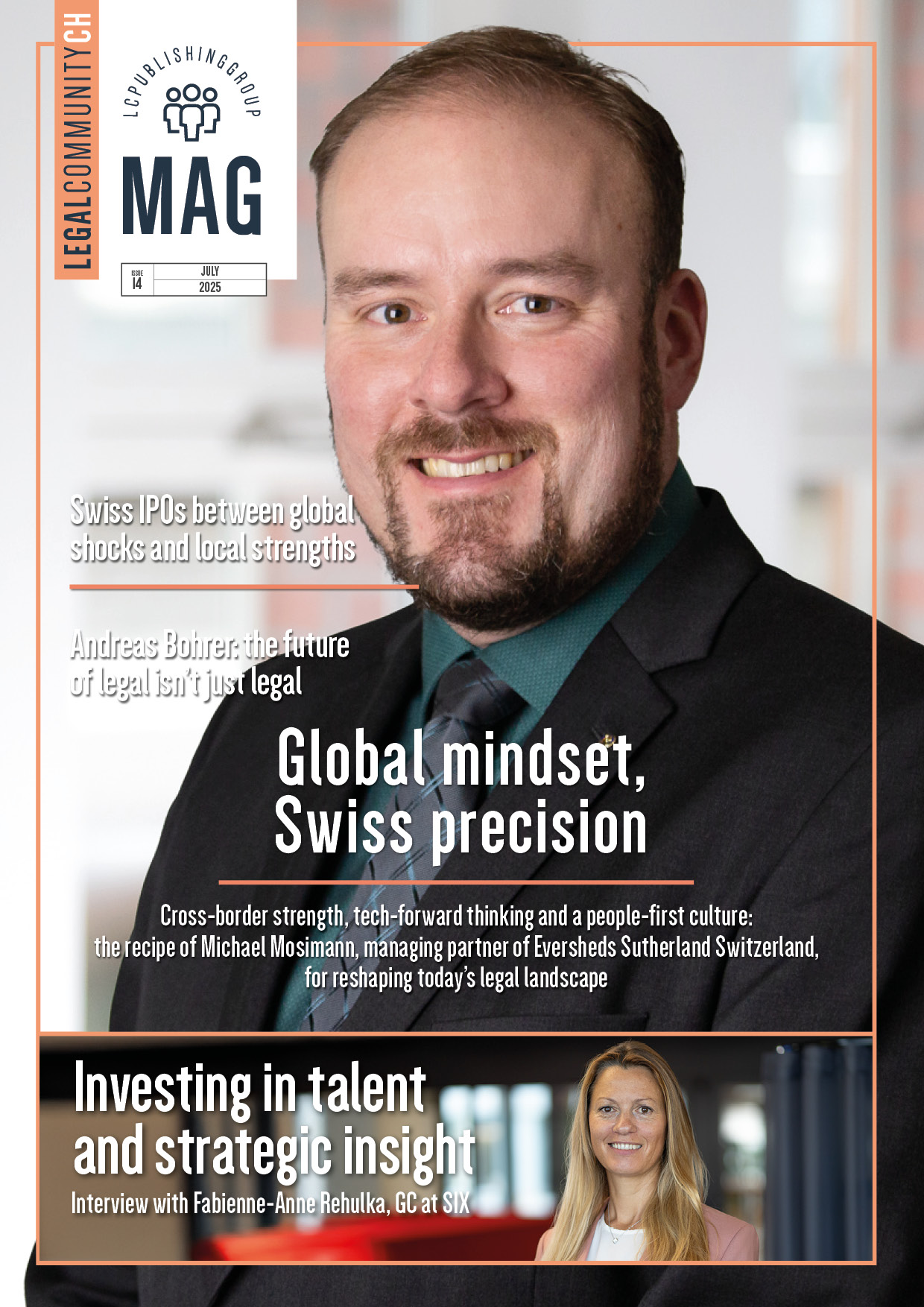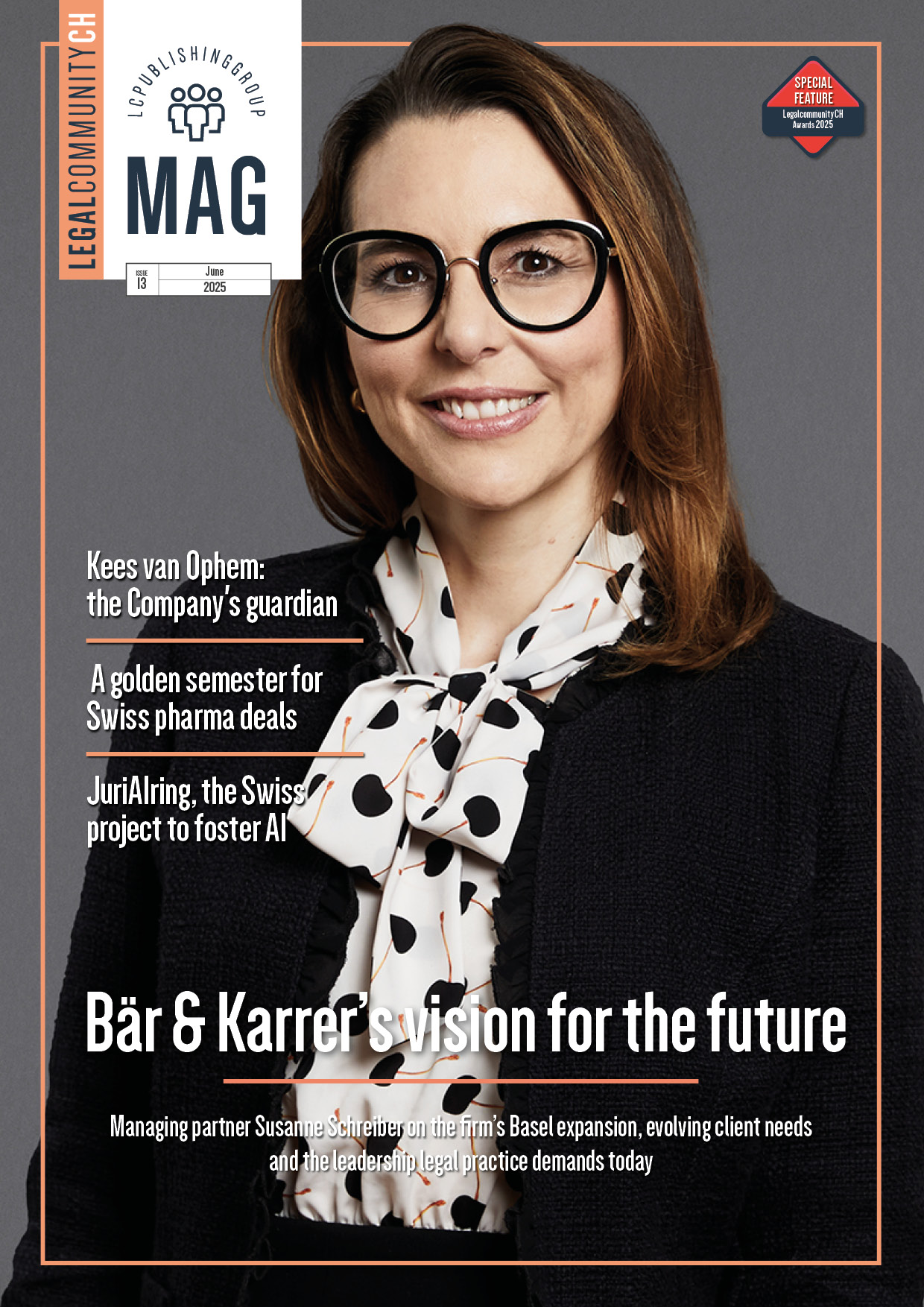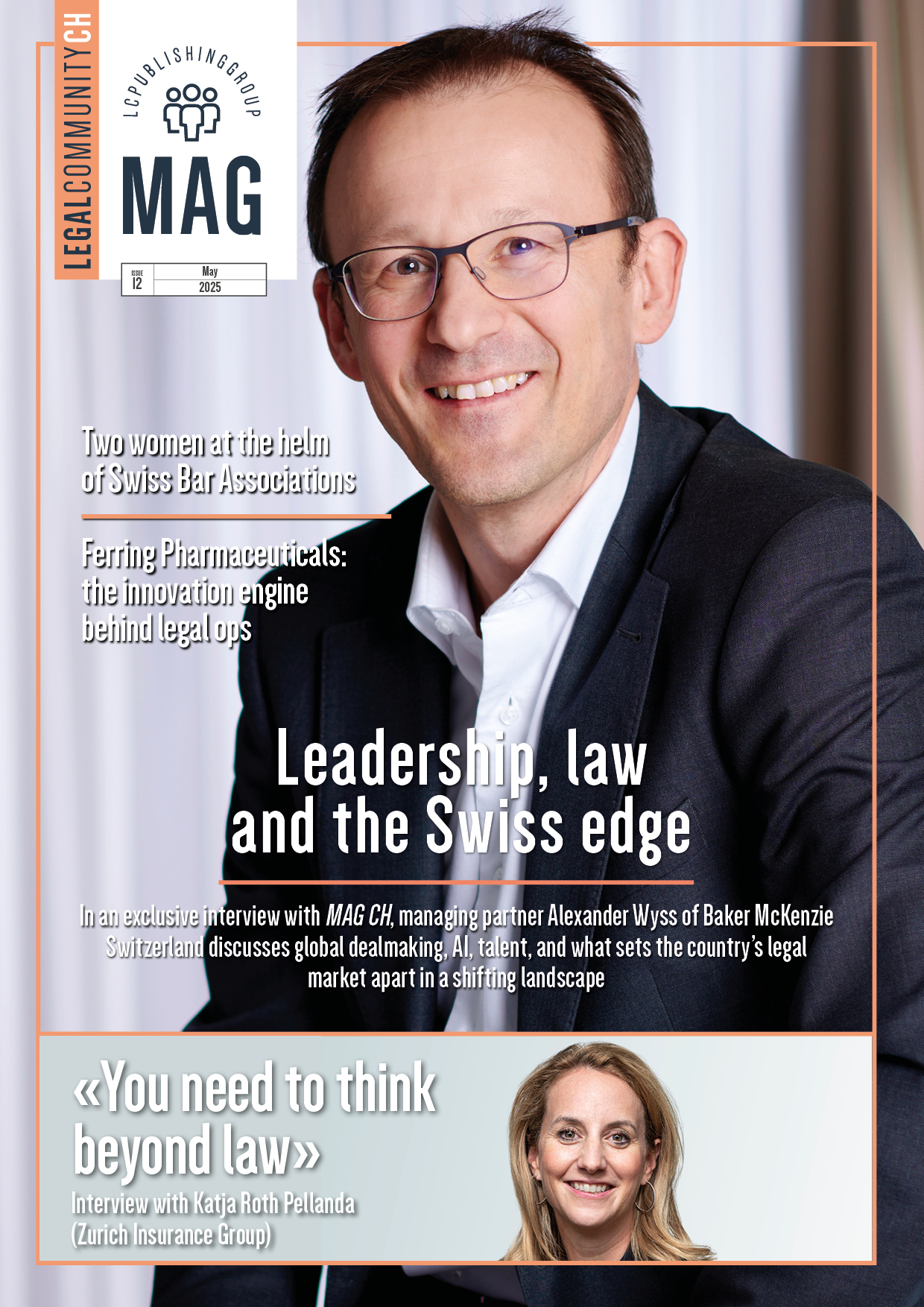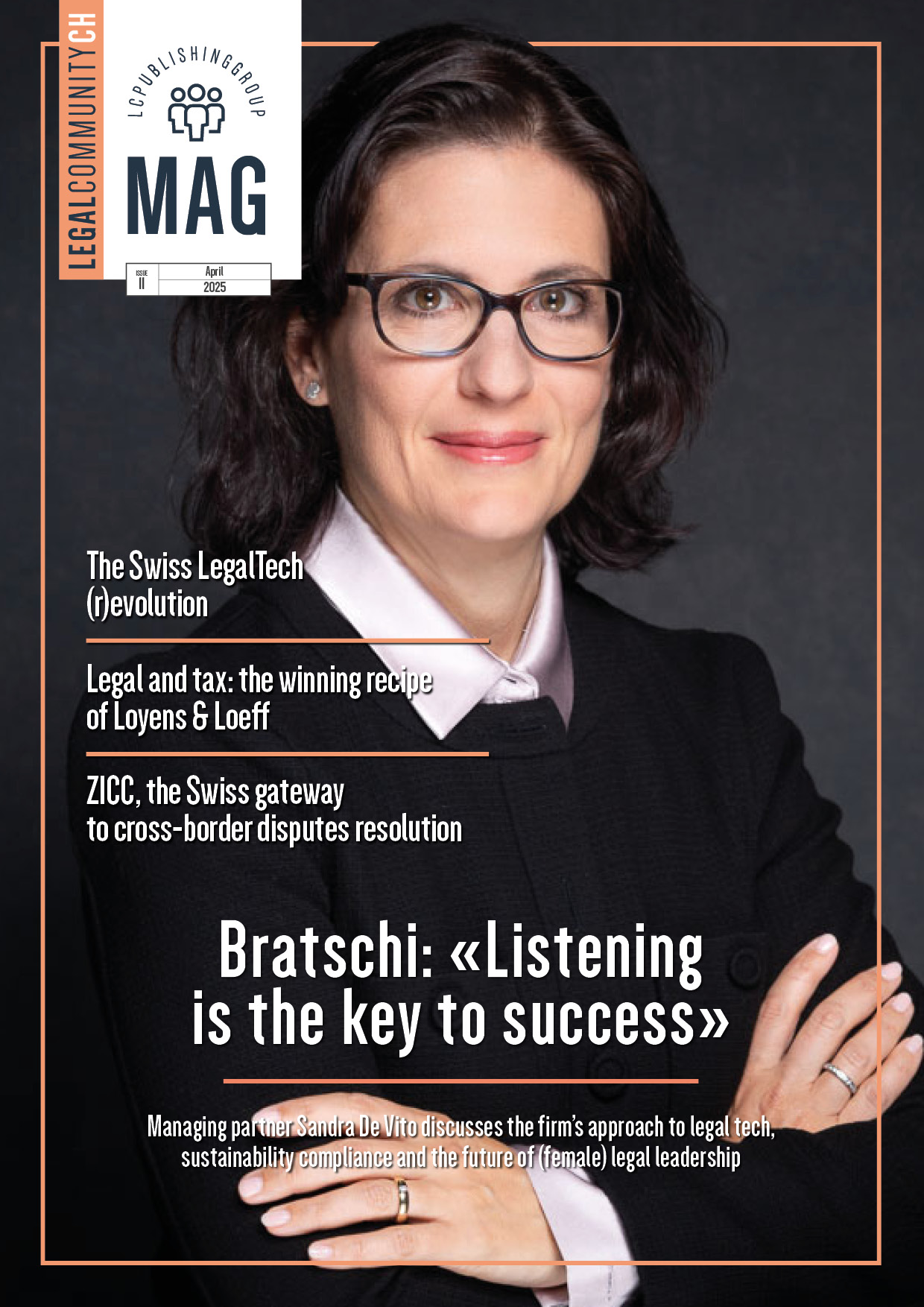Swiss Re: the (legal) journey in simplifying insurance
by alessio foderi
Legal iptiQ is part of Swiss Re Division Legal & Compliance. It was created in 2016 to support the iptiQ business, which is Swiss Re’s start-up division established to provide innovative retail insurance solutions directly to consumers. “Our mission is to reduce the protection gap by simplifying insurance”, tells MAG the General Counsel Fabienne-Anne Rehulka…
But concretely, what does it mean simplifying insurance?
Simplifying insurance means making the product more understandable and accessible. I have lived and worked in different countries (France, UK, Australia, Switzerland) and it is always a drain on my energy to identify which insurance covers my needs, which insurance company to trust, what is a reasonable price and how to purchase it. At a time of a claim, I dread the response from the insurance company. It is this drain on energy and uncertainty on cover which we seek to address.
What are the main challenges you foresee for your legal department in 2021?
Aside from Covid-19 which will continue to change the way we work, 2021 will likely bring challenges associated with adoption of new technologies. IT supported processes which we introduce daily in our business, data transfers and usage which we need to balance with data protection, require us to be very pro-active in the identification and mitigation of legal risks, especially legal uncertainty risk, which will continue to rise as our business models use technology and data in ways not anticipated by insurance laws.
What are you doing to improve people’s trust in insurance by making insurance products more transparent and easier to access and assess?
Significant investment is made in product design and customer journey, to simplify both the presentation of risks covered by the product and the process to buy it. Legal & Compliance is one of the key functions entrusted with the responsibility to ensure the right balance between too much and too little information.
Could you tell more on this legal & compliance activity?
By way of example, we review product documentation from a customer perspective to ensure the customer has access to relevant information. Insurance products can be complex as the risks they cover are generally complex, and this is often a roadblock in appreciating its value or trusting it. Another example is the steps leading to the purchase of an insurance product; while nowadays access via the internet is the norm, regulations might still require wet ink signatures or paper-based documentation. We seek to bridge these two worlds to help consumers.
The role of technology is increasingly important. How to deal with it?
The main challenge from a legal perspective in the adoption of technology is to understand the IT technical language and translate it into legal concepts. I have had the opportunity to learn the ‘underwriting’ language earlier in my career which involved translating excel formulas into words, this skillset is as challenging as learning a new language. Lawyers specialized in technologies are first and foremost lawyers who can speak fluently the IT technical language so as to understand what is being assembled, how is the data travelling, who is doing what and finally, which laws and regulations apply.
Personalized products are also a key trend. How do Legal & Compliance intervene?
Personalized products are indeed on the rise. They seek to cover a precise risk (e.g. a specific car or furniture, a specific trip or event) and are typically offered at the time of purchase. These products present unique challenges ranging from ensuring appropriate customer value, leveraging new types of data, role and responsibilities amongst the parties involved in the offering, tailored customer engagement etc. Legal and Compliance are heavily involved in such propositions, navigating requirements from a wide range of different laws, guiding non insurance players through insurance regulations, drafting complex arrangements while keeping an eye on ethics to ensure we do ‘the right thing’. Successful launch of personalized products relies very much on the maturity of cross-functional teams and close collaboration and mutual understanding between businesses which operate in different markets.
Do you think the role of general counsel has evolved throughout the years?
Yes absolutely, I have experienced it during my tenure at Swiss Re. As General Counsel, I contribute more and more as a general counsellor, providing an independent and objective view on a variety of issues, and not solely on matters of laws and regulations. This requires a good understanding of finance, tax, operational processes but also strategy, external developments, geopolitics etc. This evolution of the role is very fulfilling. Meanwhile, maintaining a balance between enabling business opportunities and advising/performing a governance role has not changed.
Apart from the legal expertise, what is needed to act as an in-house leader today?
Relationship building, versatility, curiosity are key skills which I look for when I recruit in-house counsels. It is increasingly difficult to define a role, it will evolve/change rapidly as the business develops. In this context, humility is a necessity as we need to learn every day. The technical expertise I developed in my early years as a corporate insurance lawyer is not providing me with the knowledge I need every day, but the skillset I developed over the years to understand problems, whatever their nature, is crucial. In terms of knowledge, I would rank knowledge of the company from its history, strategy to its people/culture and processes, as a key asset for any in-house counsel.
















